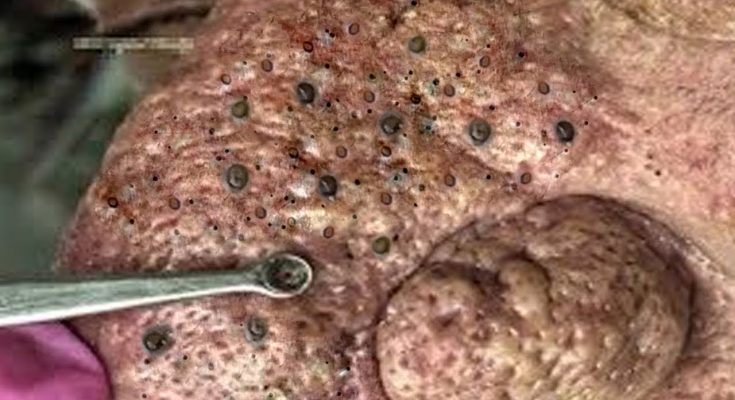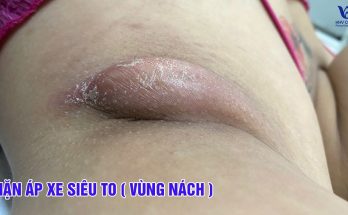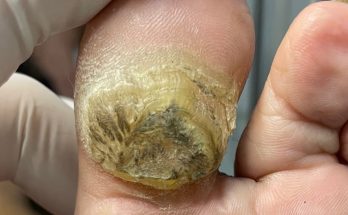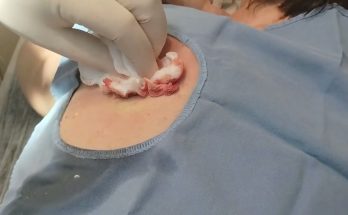Blackheads troubling you? 6 tips to remove these tiny bumps on your skin

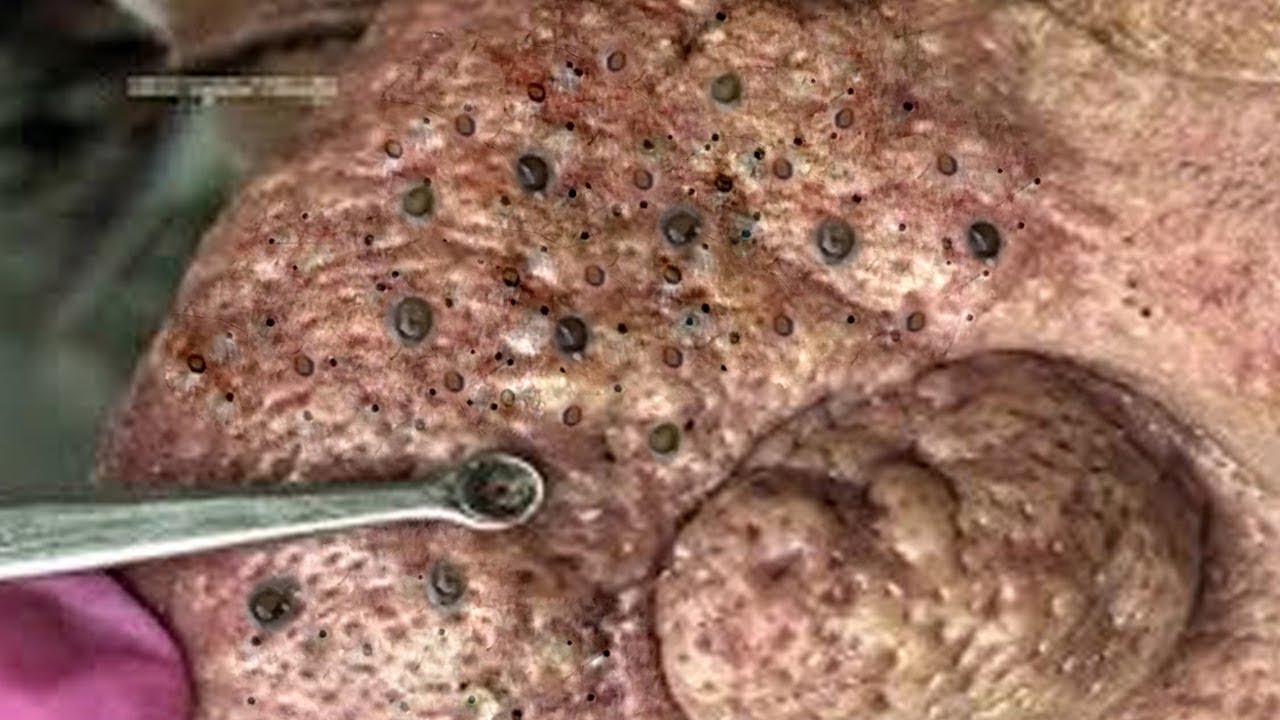
Nobody likes to have dark, tiny bumps on their face! Blackheads usually appear on your nose, forehead or chin. If you notice dark spots that just won’t go away no matter how much you wash your face, you are likely dealing with blackheads. These pesky spots form when your pores get clogged with oil and dead skin, and they are so stubborn! Blackheads not only mess with your skin’s texture but also make your complexion look uneven. Well, getting rid of them is not that easy and in fact, they often come back if you do not follow the right routine. Here are some tips to remove blackheads and keep your skin clear.
What are blackheads?
Blackheads are small, dark spots that form when the pores of the skin become clogged with oil and dead skin cells. Unlike whiteheads, blackheads are exposed to air, causing the trapped material to oxidize and turn black or dark in colour. They often appear on the face, especially the nose, but can also develop on the back, chest, and other areas. Blackheads are non-inflammatory, meaning they do not cause swelling or pain like pimples and acne do.
What causes blackheads?
Blackheads are caused by clogged hair follicles, which occur when excess oil (sebum) and dead skin cells accumulate in the pores. When the pore remains open, the trapped material oxidizes with exposure to air, turning black or dark in colour. Certain factors, such as hormonal changes, oily skin, poor skincare habits, and certain cosmetics, can increase the risk of blackheads.
How to remove blackheads?
Blackheads can be stubborn and annoying to deal with! However, with these 6 effective ways, you can easily get rid of blackheads and get clearer skin in turn:
1. Cleanse daily
When it comes to getting rid of blackheads, keeping your skin clean should be your utmost priority. It is recommended to cleanse the face twice a day, in the morning and before bed. This habit helps ensure that dirt, oil, and sweat do not accumulate on your skin, reducing the chance of blackheads. “Look for a gentle cleanser that suits your skin type. If you have oily or acne-prone skin, you might want to try a foaming or gel-based cleanser. On the other hand, if your skin is dry, a cream-based or hydrating cleanser could work best,” explains dermatologist Dr Rinky Kapoor.
2. Exfoliate
Exfoliating your skin 2-3 times a week is another great way to deal with blackheads. A good facial scrub helps to slough off dead skin cells that can build up and clog your pores. While a gentle scrub that contains small particles to remove dead skin is enough, your dermatologist may recommend an alpha hydroxy acid (AHA)-based scrub to get rid of blackheads. As per a study published in the Department of Dermatology and Skin Science, an AHA-based scrub promotes the removal of dead skin cells, resulting in a smoother and more even skin texture. Make sure you are not over exfoliating, as this can lead to redness, irritation, and even more breakouts.

3. Use an oil-free moisturiser
Many people with blackheads or oily skin avoid moisturiser, thinking that it will make their skin more oily. However, skipping moisturiser can actually make the problem worse. When your skin becomes dry, it produces even more oil to compensate. “To deal with blackheads, choose an oil-free moisturiser. This will hydrate your skin without clogging your pores. Look for products labeled ‘non-comedogenic,’ meaning they won’t cause pimples or blackheads,” says Dr Kapoor.
4. Apply silicone-free sunscreen
Sunscreen is a must, no matter your skin type. It helps protect your skin from harmful UV rays, which can lead to premature ageing and even skin cancer. However, some sunscreens contain silicone, which can clog your pores and make blackheads worse. So, always choose a silicone-free sunscreen, especially if you have oily or acne-prone skin. “Mineral sunscreens with zinc oxide or titanium dioxide are good options as they sit on top of the skin and do not clog pores,” recommends Dr Kapoor.
5. Try blackhead removal strips
Blackhead removal strips are a popular and easy way to get rid of blackheads, especially on the nose. These strips stick to the skin and, when pulled off, remove the blackheads along with them. They offer a quick solution, but the results are often temporary. Also, it is important not to overuse these strips, as they can irritate your skin and potentially make the problem worse.
6. Use non-prescription topical ingredients
There are several over-the-counter (OTC) products that can help treat and prevent blackheads. These contain ingredients like AHAs, salicylic acid, retinoids, benzoyl peroxide, and azelaic acid. Here’s how each of these ingredients works:
- AHAs (Alpha Hydroxy Acids): AHAs, like glycolic acid, are chemical exfoliants that help remove dead skin cells. They can penetrate pores and remove excess oil, dirt, and debris that may cause blackheads. A study published in the International Journal of Cosmetic Science also states that AHA is effective in removing both whiteheads and blackheads.
- Salicylic acid: This is one of the most effective ingredients for treating blackheads. Salicylic acid is a beta hydroxy acid (BHA) that penetrates deep into the pores to break down oil and dirt. It helps unclog pores and reduces the formation of blackheads over time.
- Retinoids: Retinoids are derivatives of vitamin A that increase cell turnover, meaning they help your skin shed dead cells faster. They can be found in both prescription and non-prescription forms. “Retinoids help prevent dead skin from clogging your pores, making them great for treating blackheads and other types of acne,” says the expert.
- Benzoyl peroxide: This ingredient is commonly used to treat acne because of its antibacterial properties. “While benzoyl peroxide is most effective for treating inflammatory acne, it can also help reduce the bacteria that lead to clogged pores and blackheads,” as per Dr Kapoor.
- Azelaic acid: Azelaic acid is another ingredient that helps reduce the buildup of dead skin cells and oil in the pores. It also has anti-inflammatory properties, making it a great option for people with sensitive skin or mild acne.
7 home remedies for blackheads
Blackheads can be treated naturally with some home remedies. Here are 5 best remedies you may try:
1. Tea tree oil: Known for its antibacterial properties, tea tree oil helps fight bacteria that can cause blackheads, found a study published in the journal Antioxidants. Dilute a few drops with water and apply it to the affected areas.
2. Oatmeal: Oatmeal acts as a gentle exfoliant and absorbs excess oil from the skin. Mix oatmeal with water or yogurt to create a scrub and massage it onto your face.
3. Green tea: Rich in antioxidants, green tea helps reduce oil production and inflammation, reveals a study published in the journal Antioxidants. Brew green tea, let it cool, and apply it to your skin with a cotton ball.
4. Sugar and salt scrub: A homemade scrub with sugar or salt mixed with olive oil can exfoliate dead skin cells and unclog pores. Use this scrub 1-2 times a week for best results.
5. Steaming: Facial steaming helps open pores and loosens the dirt and oil trapped inside. After steaming, gently exfoliate or apply a mask to clean your pores thoroughly.

Treatment for blackheads
Here are 5 treatment options available for blackhead removal:
1. Oral antibiotics: Oral antibiotics are prescribed to reduce acne-causing bacteria and inflammation in severe cases of blackheads or acne. They help prevent future breakouts but are typically used short term to avoid resistance.
2. Chemical peel: A chemical peel uses acids to exfoliate the skin, removing dead cells and unclogging pores. This treatment can improve skin texture and reduce the appearance of blackheads over time.
3. Laser skin resurfacing: Laser treatments target deep layers of the skin, reducing oil production and killing bacteria. This can help prevent blackheads and improve overall skin tone.
Also read: Calling all peeps with oily skin: Tomatoes can fix your acne and blackheads
4. Prescription-based retinoids: Retinoids speed up cell turnover, preventing dead skin cells from clogging pores. They can be used after a doctor’s prescription and are highly effective for treating stubborn blackheads.
5. Microdermabrasion: Microdermabrasion is a minimally invasive procedure that exfoliates the skin using a specialised device. It helps remove dead skin cells and smoothens the skin, reducing blackheads.
How to prevent blackheads?
With these simple 7 daily skin care habits, you can prevent blackheads from forming:
1. Double cleanse your face
Double cleansing means washing your face twice: first with an oil-based cleanser to remove makeup and sunscreen, and then with a gentle water-based cleanser to get rid of dirt and excess oil. This keeps your pores clean and prevents blackheads.
2. Exfoliate gently
Exfoliating helps remove dead skin cells that can clog your pores. Choose a gentle scrub or a chemical exfoliant, like salicylic acid, and use it 2-3 times a week. Be careful not to over-exfoliate, as it can irritate your skin and lead to more blackheads.
3. Wear sunscreen
No matter what your skin type, sunscreen is essential to protect your skin from harmful UV rays. However, some sunscreens can clog pores. So, choose a non-comedogenic or silicone-free sunscreen to avoid blackheads. Applying it daily can also prevent skin damage and premature ageing.
4. Use alcohol-free skin products
Alcohol in skincare products can dry out your skin, causing it to produce more oil. This extra oil can clog your pores and cause blackheads. Stick to alcohol-free cleansers, toners, and moisturisers to keep your skin balanced and hydrated.
5. Shampoo oily hair
If you have oily hair, it can transfer oil to your face, especially around your forehead. Washing your hair every other day can reduce the amount of oil that comes into contact with your skin, helping prevent blackheads.
6. Change pillowcases often
Your pillowcase can collect oil, dirt, and bacteria from your hair and skin. Change your pillowcases regularly, at least twice a day, to avoid transferring these impurities to your face, which can lead to blackheads.

7. Avoid touching your face
Touching your face transfers dirt and oil from your hands to your skin, clogging your pores. Try to avoid touching your face throughout the day, and always wash your hands before applying skincare products.
With these tips, you may be able to remove blackheads!
